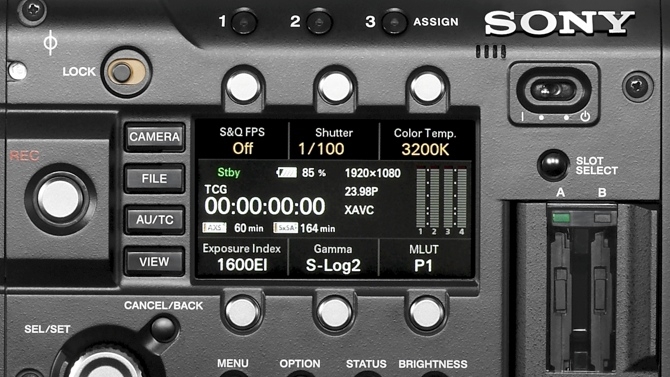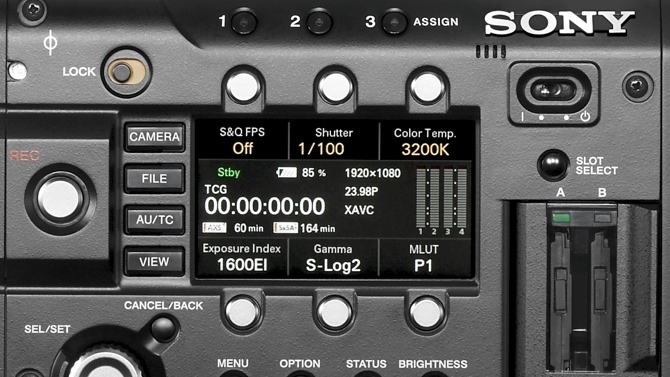
 F55 side view
F55 side view
Have cameras reached the point where we need to be looking beyond resolution to judge their film-making abilities?
At the Sony launch of the new F5 and F55 camera in London, I was talking to my fellow RedShark contributor, Phil Rhodes. He said to me that, impressive though Sony's - and all the other manufacturer's - cameras are these days, they've reached the point where in terms of quality there isn't much to choose between them.
Now, this was just Phil playing devil's advocate, and he knows more than most people that there's a lot more to it than that. But is there perhaps just a tiny grain of truth in what he was saying?
It depends where you look.
Sheer resolution
If you were going to base your argument on sheer resolution, there's little contest at the moment.
Sony's F65 has a 8K sensor - that's four times 4K - and with the recent announcements, all of these pixels will be available in version 3.0 of the camera's software.
8K is 33 megapixels. 4K is 8 megapixels. Most still camera manufacturers have now acknowledged that there's no point in cramming more and more pixels into the same size sensor. Not many people can argue as to why you might need more than (say) 26 megapixels, and the reality is that as long as you have at least six megapixels, you can take respectable pictures.
So, a good 4K video camera is going to take great video. There are now several of them from Red, Canon, Sony and even JVC (with their handheld, fixed lens GY-HMQ10).
Dealing with data
What distinguishes them is not how many pixels in their sensor matrix, but how they deal with that raw data from the sensor, what their usable dynamic range is, how they deal with difficult situations, and how they allow DOPs to be flexible and creative.
In a way, the number of pixels is now pretty much analogous to how fast a car will go. There are plenty of cars that will do 160 MPH, and they're all as different as you can get. And there will always be people who prefer Porsches to Lambourghinis; Mercedes to BMWs.
So, at some point, I think we are going to be able to say that a given high-end camera's resolution is Good Enough (by which we mean "excellent" or even "outstanding"), and then we will be left with only about a million other factors to base what will be more of an emotional - our should we say "aesthetic" - rather than a technical - decision on.
We're still working on RedShark's comments system. Meanwhile, if you'd like to respond to this article, drop an email to editor@redsharknews.com, and we'll print the best ones.
Tags: Technology


Comments